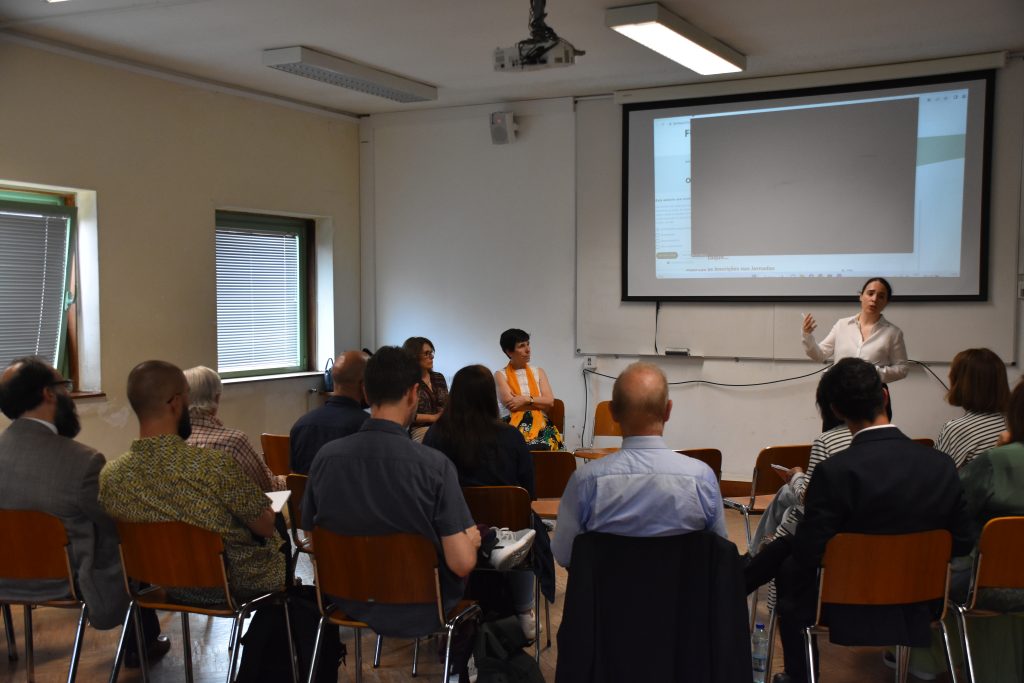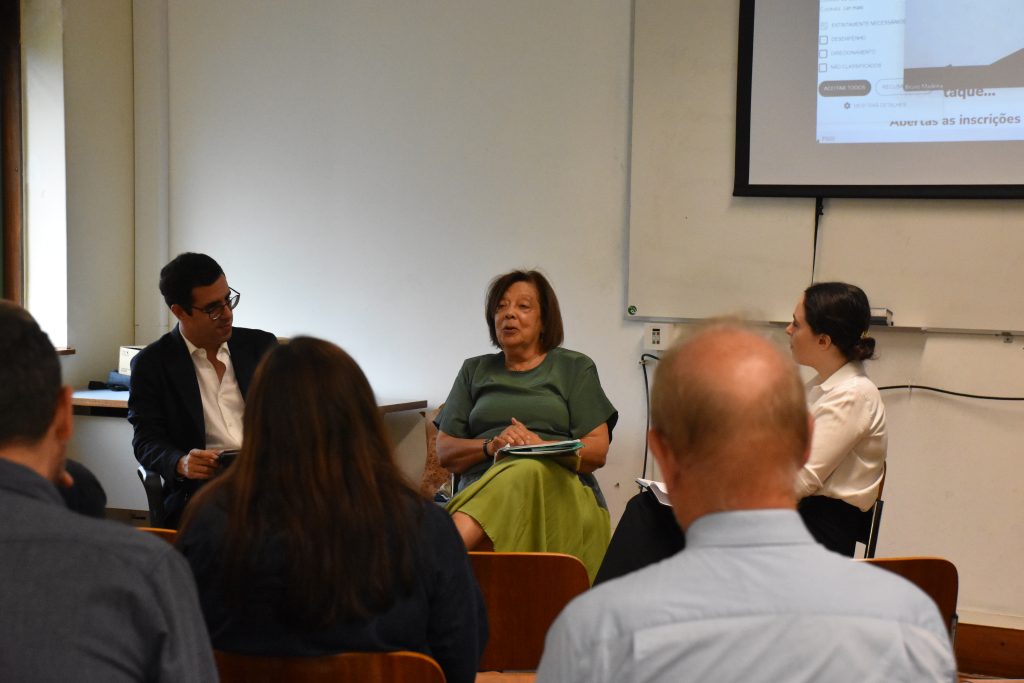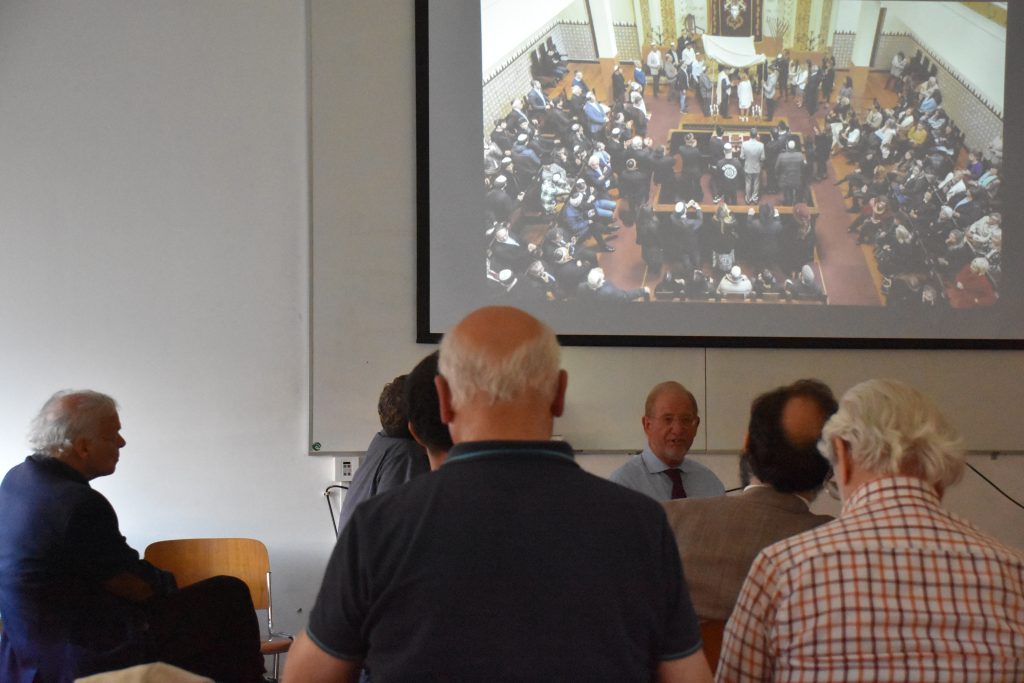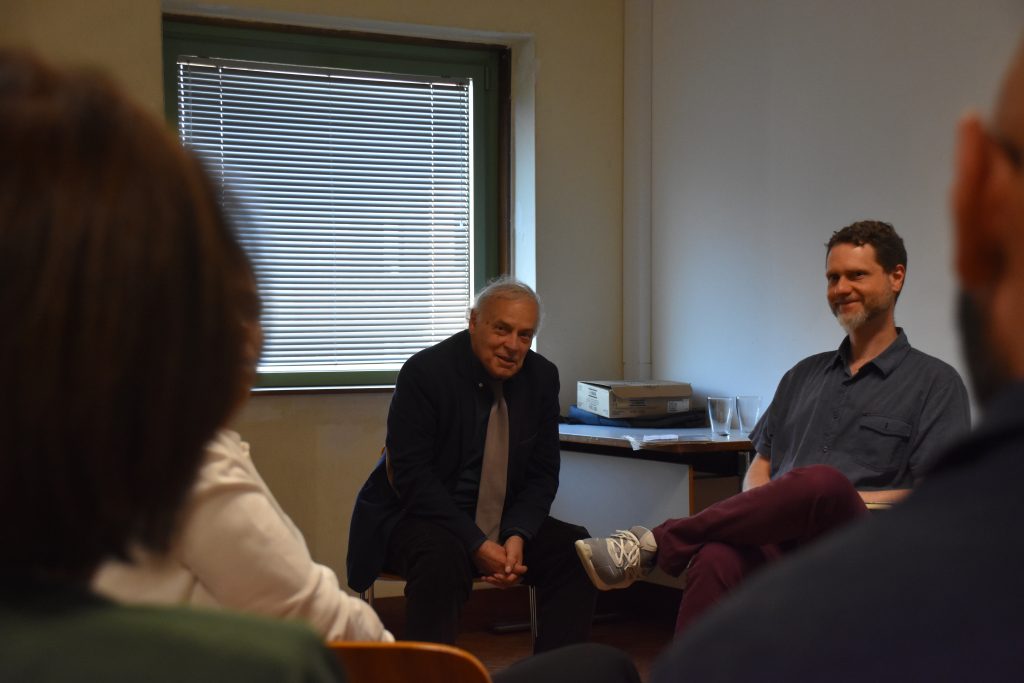Jewish Resistance
Overview
SolRem’s memory forums aim to educate and raise awareness about the history of resistance and solidarity against right-wing authoritarianism and dictatorships. This memory forum was focused specifically on the Jewish community and the challenges they have faced throughout history, in the Portuguese context.
The event at the Faculty of Arts and Humanities of University of Porto desired to fulfill the purpose of preserving the memory of the Jewish community’s presence in Portugal, by exploring this theme throughout different historical periods. It brought together a group of professionals in the field of Jewish studies, as well as members of the Jewish Community of Porto and also the grandson of the Portuguese counsel and one of the Righteous Among the Nations , Aristides de Sousa Mendes. In this way, the memory forum promoted a varied sharing of knowledge on the topic of Jewish resistance.
The topics addressed in this event are mentioned in the following section.
There were around 20 people in the audience engaging in the discussion and debate of the topic of Jewish resistance in Portugal.

Agenda
| 24th May 2023 – 14:30-18:30 |
| Opening of the Memory Forum on Jewish Resistance in Portugal: Professora Doutora Paula Pinto – Director of the Faculty of Arts and Humanities of University of Porto and Professora Doutora Inês Amorim – Scientific coordinator from CITCEM – Centro de Investigação Transdisciplinar Cultura, Espaço e Memória |
| Jewish Resistance in Portugal: Dr. Hugo Vaz (Curator of the Holocaust Museum of Porto and Jewish Museum of Oporto) Artur Barros Bastos and the Ha-Lapid journal – The Voice of Israel in Portugal: Prof. Elvira Mea (Professor at the Faculty of Letters of the University of Porto) |
| Aristides de Sousa Mendes – Righteous among the nations: Dr. António de Moncada de Sousa Mendes (Aristides de Sousa Mendes Foundation) Challenges of the Jewish Community Today: Dr. Michael Rothwell (Steering member of the Jewish Community of Porto and director of the Holocaust Museum of Porto) |
Contributions
Jewish Resistance in Portugal
Under the general topic of Jewish Resistance in Portugal”, Dr. Hugo Vaz explored the dynamics of Jewish history in Portugal, through discussing the evolution of the presence of Jews in national territory and the influence it performed in the course of history, by delving into the path from 300 years of Inquisition to the first Holocaust Museum in the Iberic Peninsula. By explaining the process of development of the Jewish Community of Porto and the foundation of Synagogue Kadoorie – the most prominent synagogue from the Iberic Peninsula, Dr. Hugo Vaz shared with us the efforts made throughout the years and the challenges that have accompanied such efforts.
The conclusion of Dr. Hugo Vaz’s speech introduced a very relevant aspect to the discussion, that is that we must consider education as a form of resistance. This stems from the unequivocal need to bring Portuguese society closer to the topic of Jewish history, as it constitutes a significant part of national history. There must be an improvement in education about this topic, not only for the young students but also for the teachers, as it is believed to only be possible to break negative ideas and stereotypes about the Jewish people through education.

Artur Barros Bastos and the Ha-Lapid journal – The Voice of Israel in Portugal
On the topic of “Artur Barros Bastos and the Ha-Lapid journal – The Voice of Israel in Portugal”, Prof. Elvira Mea focused on approaching the founder of the Jewish Community of Porto – Captain Artur Barros Bastos, by exploring his importance in historical terms.
The Ha-Lapid journal – created by the Captain – was also a central topic of the intervention, as it was a communitarian journal that symbolized resistance. Some excerpts of the journal issues illustrated the development of the Jewish Community of Porto, and its main concerns and challenges.
Aristides de Sousa Mendes – Righteous among the nations
Concerning the topic “Aristides de Sousa Mendes – Righteous among the nations”, Dr. António de Moncada de Sousa Mendes began his exposition by introducing himself as the grandson of Aristides de Sousa Mendes, a righteous and fair diplomat that helped hundreds of Jews escape from World War II. Dr. António de Moncada de Sousa Mendes shared the courageous work Aristides had done, whose memory is preserved through the work of Aristides de Sousa Mendes’ Foundation.
Portugal played a neutral role in World War II. However, Aristides bravely decided to go against the orders of the fascist dictator António Oliveira de Salazar and give entry visas to Jews to enter Portugal and escape the Nazi persecutions. There were severe consequences at the time, but ever since there was peace in Europe Aristides has been considered a hero. In 1966, Yad Vashem recognized Aristides de Sousa Mendes as Righteous Among the Nations.

Challenges of the Jewish Community Today
When it comes to addressing the “challenges of the Jewish Community today”, Dr. Michael Rothwell discussed the hardships that the Jewish community has faced over the years, stressing the obstacles that they still encounter today. The challenges faced now are addressed under the European Union’s Strategy on combating antisemitism, as it aims to act upon (1) the prevention and combat of all forms of antisemitism, (2) the protection of Jewish life in the European Union, and (3) education, research and Holocaust remembrance. While approaching the evolution of the work conducted by the Jewish Community of Porto, Dr. Michael Rothwell talked about the gathering of more and more people in the Synagogue Kadoorie. In addition, the Jewish Museum of Porto and the Holocaust Museum of Porto have also been very important achievements in the process of raising awareness and educating the Portuguese society. Both museums receive a lot of student visits. This involvement of schools and young students with both museums is a successful step taken towards the education about Jewish people and their role in Portuguese history.
Conclusions
The Memory Forum: Jewish Resistance in Portugal provided a secure environment for the exchange of knowledge and experiences related to the subject. By allowing for audience participation, it also provided an opportunity to meet and interact with people who are knowledgeable about the issue.
We received a lot of positive feedback from the audience and the guests, who agreed that more efforts should be made to promote conversation and the dissemination of information about the Portuguese Jewish community.

